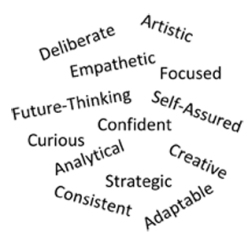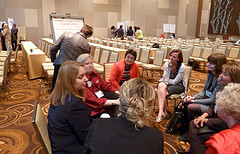 Most of us have dreams, whether it’s something lofty or down-to-earth. And much of the time, our reality is far different from that dream.
Most of us have dreams, whether it’s something lofty or down-to-earth. And much of the time, our reality is far different from that dream.
But there may be some ways that you can bridge that gap and bring at least a touch of your dream into your world now.
As we’ve talked about setting goals in the Ready, Aim series (click here for Part 1 and Part 2), it’s important to build at least one or two goals related to your dreams.
But I guess the first question to ask is, “you have identified your dreams, haven’t you?”
I think for many of us, the reality of family, work, financial and other obligations tends to obscure our dreams or cause them to fade. We may not allow ourselves to even consider them since there are so many other urgent issues vying for our attention. It feels selfish and we tend to put our dreams in the trunk while we travel along the road of the everyday.
But what if you allowed yourself to dream just a little? Would that make a difference in your quality of life?
My friend Lily Kreitinger wrote last week about “Do You Want To Be You?” in which she asks an important question of whether she should listen to her “self-talk” which tells her to focus on her duties as wife, mom and employee and suppress those things that give her joy, like blogging, teaching, or making jewelry. But she wouldn’t be happy ignoring those things that are her dreams. Would you?
I think there’s a way to bridge that gap between the things that we HAVE to do and the things that make us SOAR. If we don’t, we lose a piece of ourselves, and we are less invested in the things that we must do.
By indulging our dream even just a little bit, it makes us more valuable to the people we love and impact every day.
For me, I have discovered that writing is my passion, so I have started getting up a little earlier in the morning to allow myself time to write every day. Makes it much easier to face the challenges of the day when I have allowed myself a little time for me.
The trick is in finding the balance. Here are some steps to take to get you started:
- Identify your dream – for some of us, we are so outwardly focused on others that we’ve lost touch with what our dreams are. Spend some time with yourself, either journaling, meditating, mind mapping or just quietly thinking about the thing or things that truly light your fire. It might be writing, painting, scrapbooking, making jewelry, singing, speaking publicly, or any number of things. Pinpoint what it is and accept that. Proclaim to yourself your new identity.
- Share it with your family or close friends. Let those who are closest to you know that this is your passion and what makes you happy. Ask them to support you in exploring your dream.
- Find a way to indulge your dream at least every once in a while. Maybe look at your schedule and set aside a couple of hours on a weekend or evening to spend time alone pursuing your dream activity. Get up a little bit early a couple days a week. Carve out a little time for yourself.
- Don’t feel guilty. You have to take care of yourself before you can take care of others. You will be more content and less distracted if you have allowed yourself a little time.
While you may not be able to pursue your dream full-time, by allowing yourself even an hour or two each week or a couple of times a month, you are nurturing an important part of yourself. You’ll become happier and more satisfied and your family and those close to you will see a change. It’s a win-win situation!
What is your dream, and how can you take a step toward it?




















































